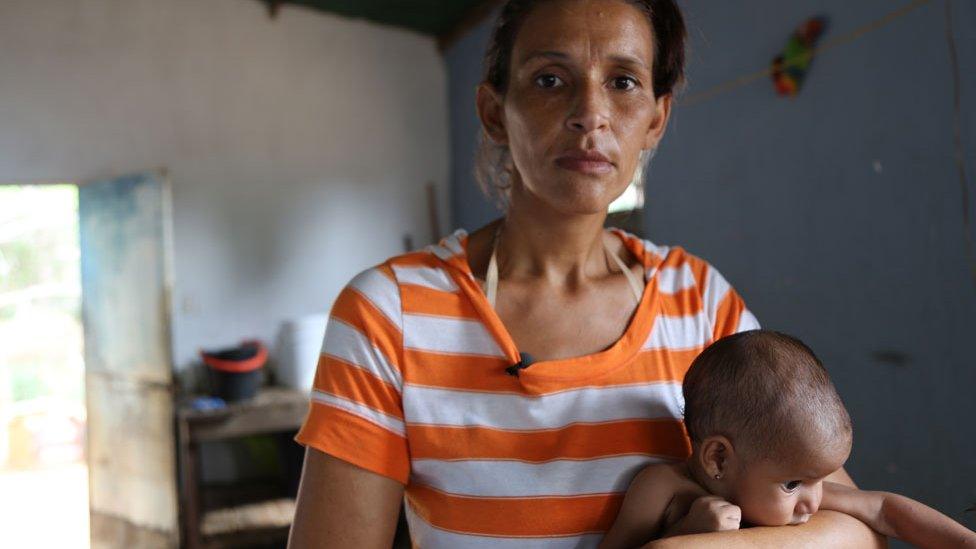Venezuela crisis: When a simple cut can mean death
- Published
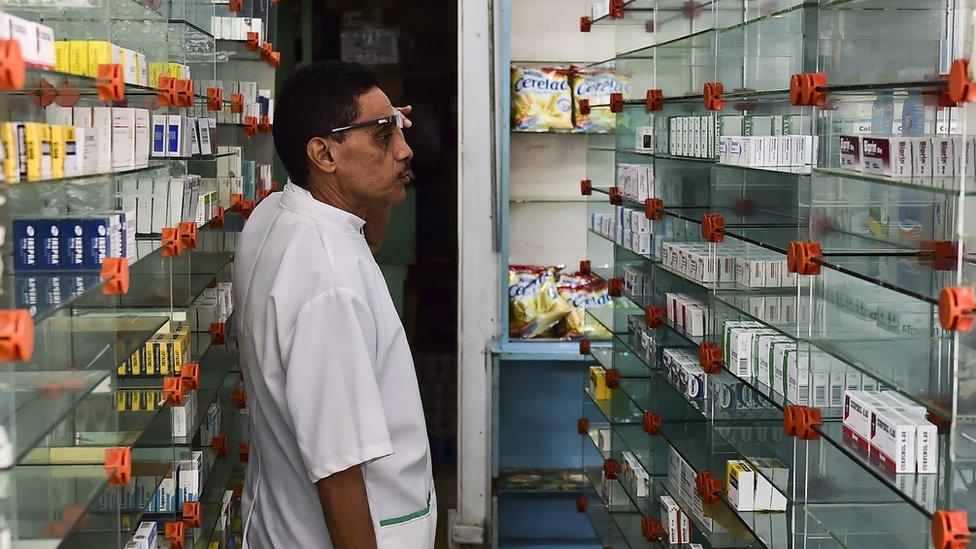
Pharmacies in Venezuela are short of even the most basic medicines
Armando (not his real name) is afraid. For Armando, a small bruise or a cut could have serious consequences, and even lead to death.
Armando has haemophilia, an illness that impedes blood cells from forming clots, which means that when he cuts himself, he bleeds for longer.
While haemophilia cannot be cured, bleeding can normally be controlled with medication.
But Armando lives in Venezuela, where there are acute shortages of medicines.
Venezuela's Pharmaceutical Federation reports that only 15% of medicines are readily available and Armando has not been able to find the drugs he needs for the past six months.
"I used to have a normal life, where I could have the drugs in my fridge in case of an emergency, but now I don't have anything," he told me.
'Resistance fighter'
Armando's plight has stirred his son into action.
The son, who is in his early twenties, is taking part in the anti-government demonstrations that have rocked the country for almost four months.
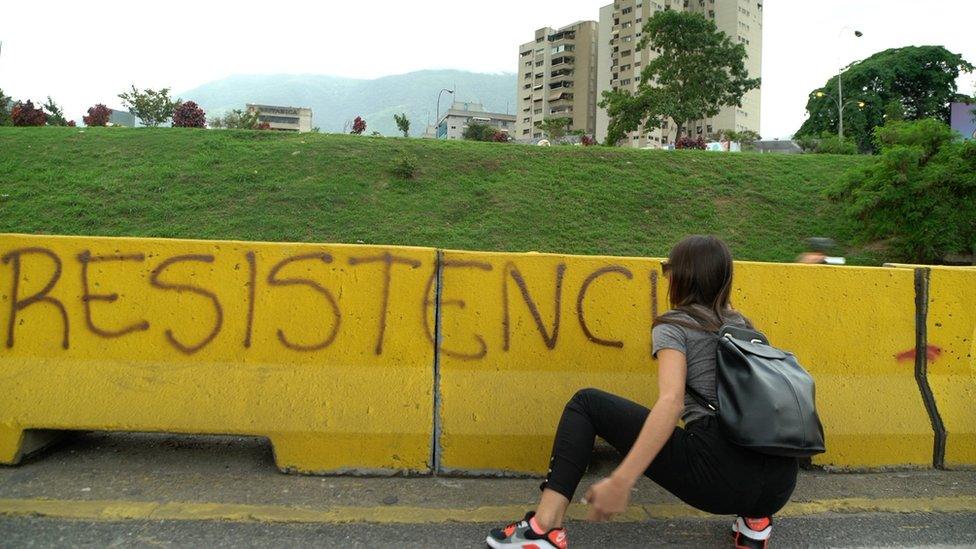
Those on the front lines of the protests call themselves "The Resistance"
He is part of the "The Resistance", a group of protesters who, with their faces masked and carrying shields, march at the front of the demonstrations clashing with the police and the National Guard.
They started out as a ragtag band of students and youths who wanted to "protect" those marching in protest to government buildings.
They would step in to protect the marchers when the security forces fired tear gas or birdshot.
Rodrigo (not his real name) does not want to be identified for fear of being imprisoned. At least 3,000 people have been detained since the beginning of April.
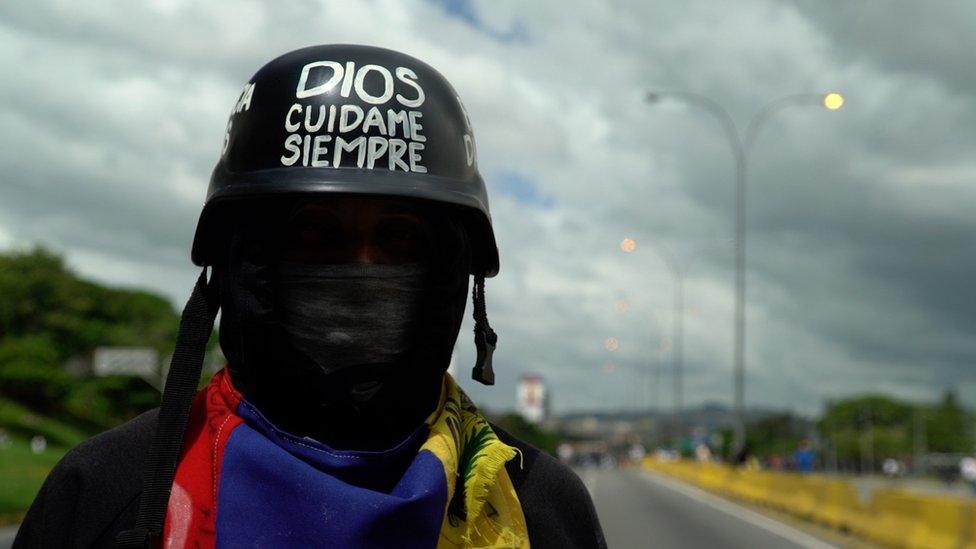
Protesters wear masks so they cannot be identified by the security forces
Some are being kept in detention despite a judge ordering their release.
Venezuela's chief prosecutor, Luisa Ortega, has accused the government of "state terrorism", citing the heavy-handed tactics used by the security forces in the demonstration and the detentions.
Rodrigo says he fears for his future. He lives with his family in a block of flats in a working-class neighbourhood in central Caracas.
It is crammed with many other members of his large family. Like many other Venezuelans, they are eating less.
"Sometimes we go through hard days, like coming back home and not having anything to eat," says Rodrigo.
In a poll, eight out of 10 Venezuelans said that they had to make do with two meals a day last year.
Constitution the solution?
One month after the current wave of protests began, President Nicolás Maduro convened a constituent assembly.
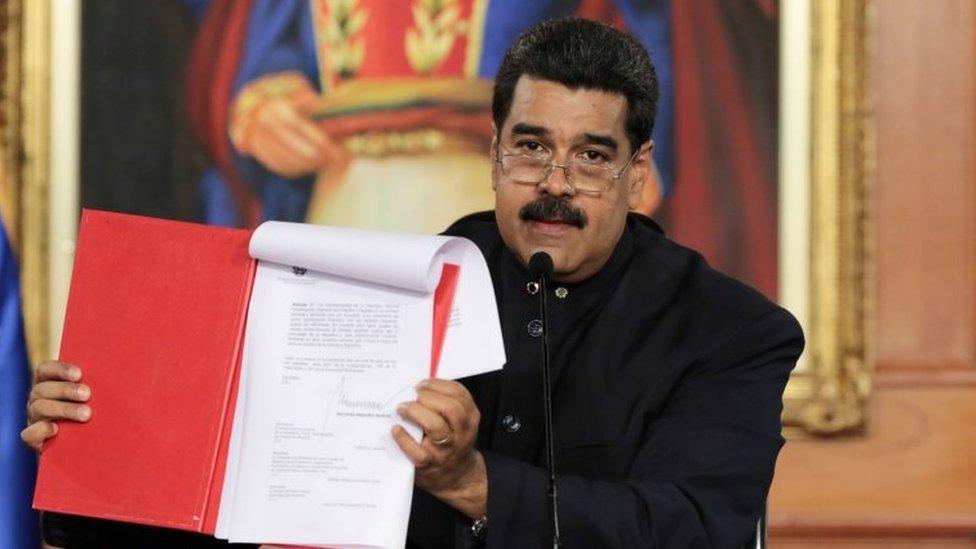
President Maduro signed a decree to convene a citizens assembly
The new body, which will have hundreds of elected members, will be given the task of rewriting the country's constitution.
Voting will take place on Sunday and many candidates will be nominated by the governing PSUV party.
The opposition, which is boycotting the process, the United States and the majority of South American countries have denounced the election as a blow to democracy.
The opposition coalition, MUD, says the new body will seek to quash dissent.
While President Maduro says it is all about restoring "peace" he has also said that it will help him imprison the opposition leaders who are behind the current protests.
"I've got a cell ready waiting with your name on it, for when we get the new constitution in place", he said referring to an opposition leader.
But a new constitution will also send into the oblivion the little blue book that the late president, Hugo Chávez, used to wave constantly during his television programmes or at rallies.
Mr Chávez, who was President Maduro's mentor and predecessor in the top job, used to carry the pocket-size version of the constitution with him at all times, brandishing it as one of his most proud achievements.
'Not untouchable'
The then-president proposed drafting a new constitution in 1999.
But unlike Mr Maduro now, Mr Chávez put his proposal to the people. A referendum was held and a majority backed the idea of convening a constituent assembly.
Eighteen years on, Mr Maduro now wants to draft a new document.
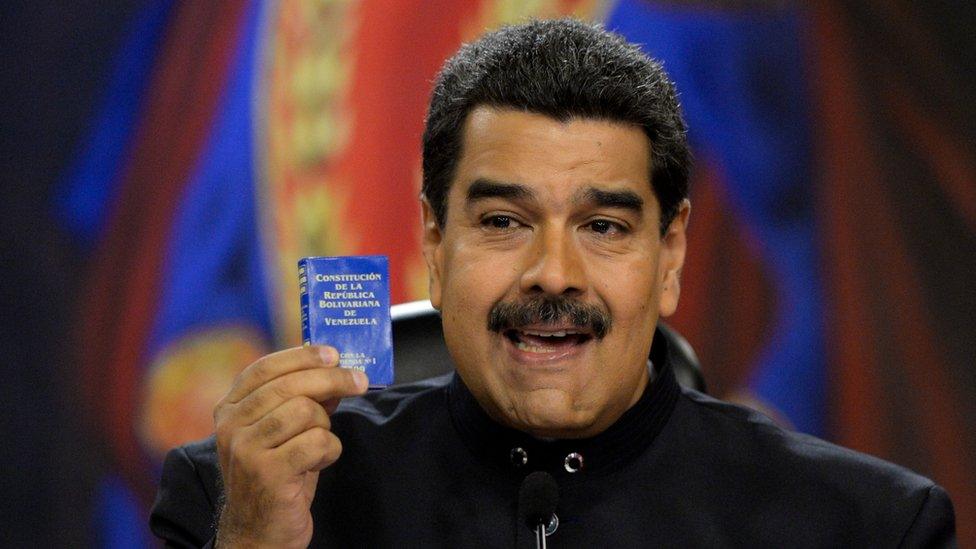
President Maduro, unlike President Chávez, did not hold a referendum before convening the constituent assembly
"No constitution is ever truly untouchable," high-ranking PSUV party member and government minister Freddy Bernal says.
"Why? Because society moves on and these changes will bring the constitution in line with these new times," he says in a rare interview with the BBC.
The difference now is that President Maduro is not asking the people in a referendum, he is simply doing it.
And this is one of the main reasons why the constituent assembly is proving so unpopular.
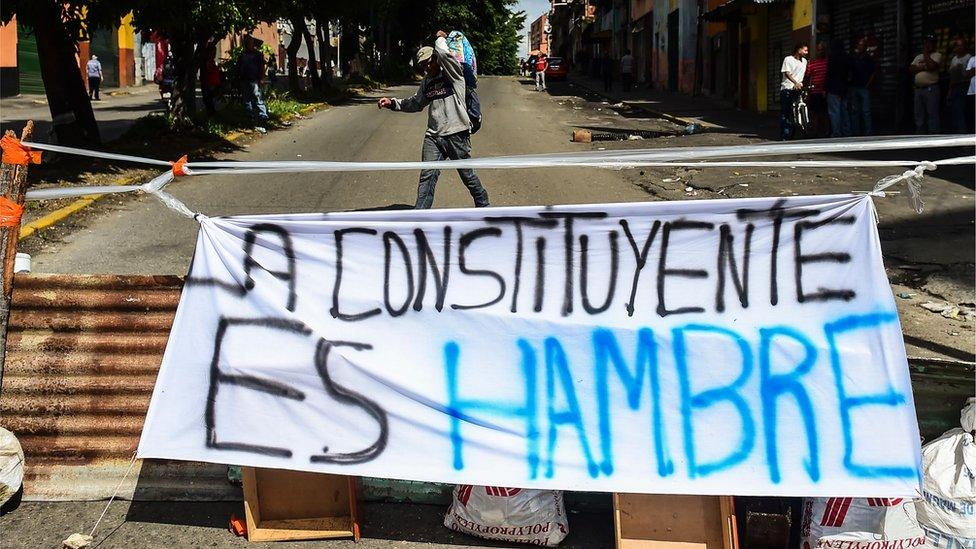
A banner reading "The constituent assembly means hunger" shows the rejection felt by some
The other is that people are struggling to see how redrafting the constitution can improve the country's dire economic situation.
Rodrigo is one of those who cannot see it working. "As a university student, I can't see any future with a new constitution," he tells me.
"I just can't see it, it's not there."
- Published27 July 2017
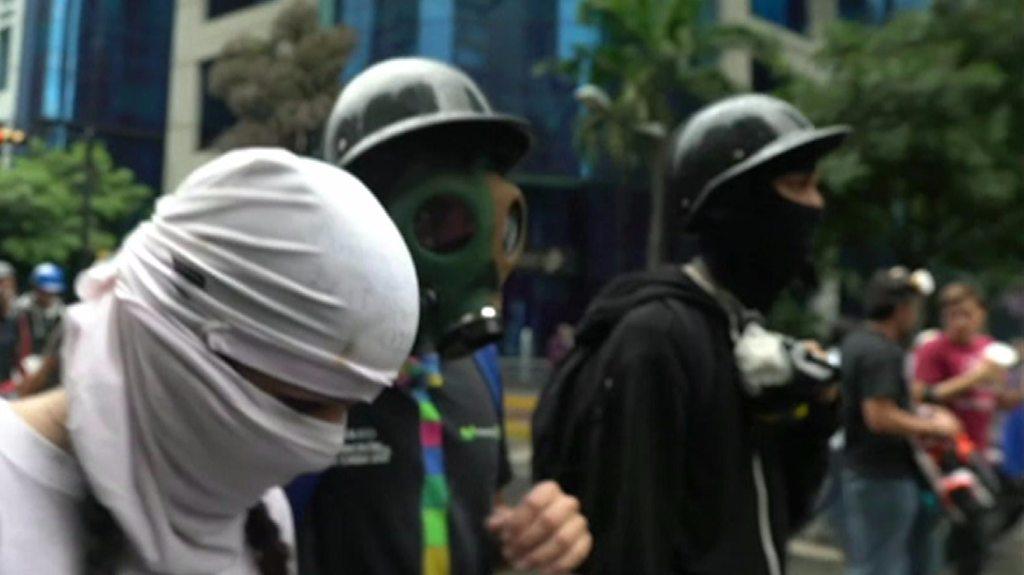
- Published19 July 2017
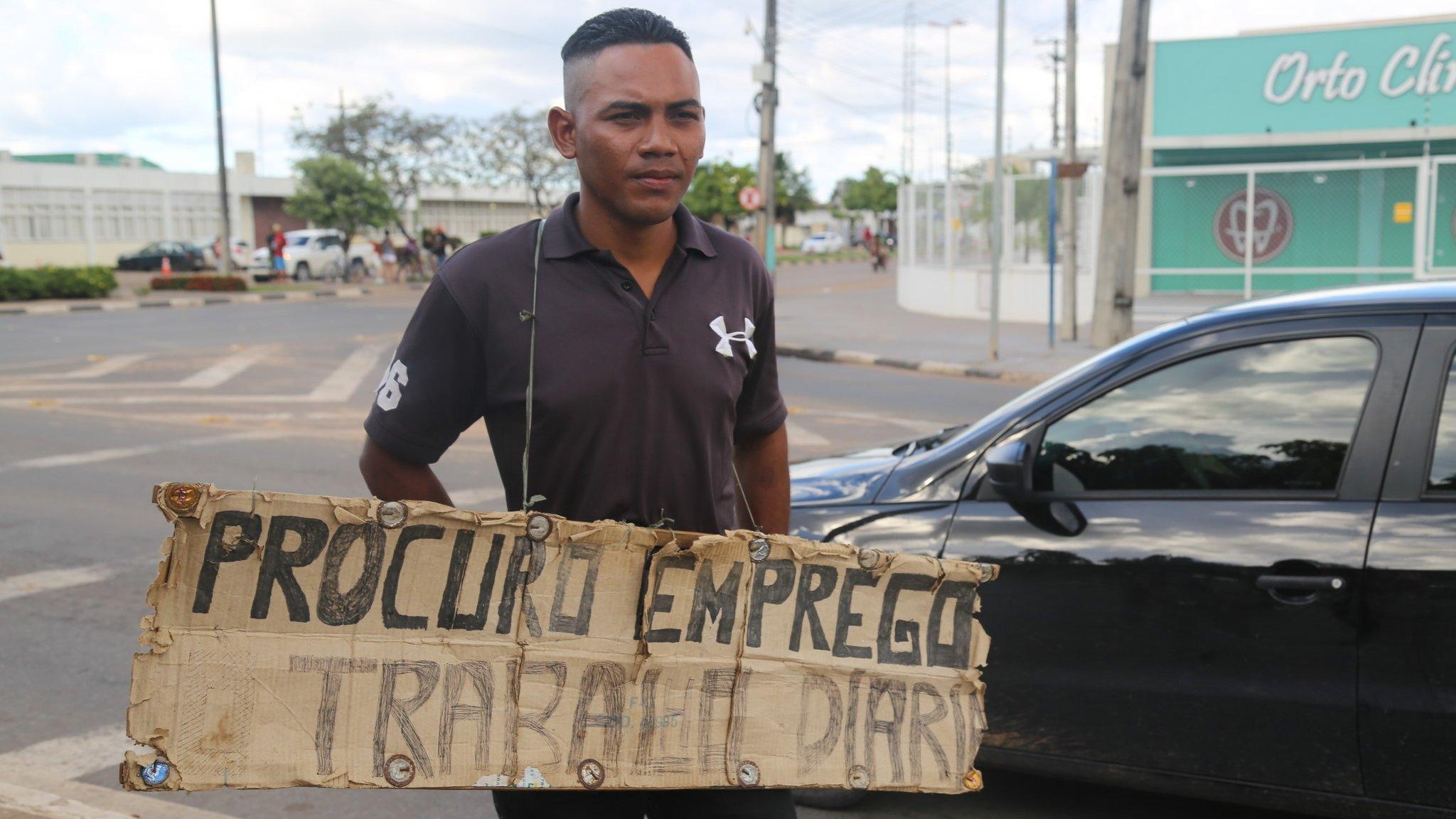
- Published29 July 2016
